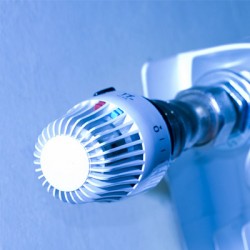Boiler/Heating Engineers in the UK
Search Boiler/Heating Engineers by county
- Boiler/Heating Engineers in London
- Boiler/Heating Engineers in Bedfordshire
- Boiler/Heating Engineers in Berkshire
- Boiler/Heating Engineers in Bristol
- Boiler/Heating Engineers in Buckinghamshire
- Boiler/Heating Engineers in Cambridgeshire
- Boiler/Heating Engineers in Cheshire
- Boiler/Heating Engineers in Cornwall
- Boiler/Heating Engineers in County Durham
- Boiler/Heating Engineers in Cumbria
- Boiler/Heating Engineers in Derbyshire
- Boiler/Heating Engineers in Devon
- Boiler/Heating Engineers in Dorset
- Boiler/Heating Engineers in East Riding of Yorkshire
- Boiler/Heating Engineers in East Sussex
- Boiler/Heating Engineers in Essex
- Boiler/Heating Engineers in Gloucestershire
- Boiler/Heating Engineers in Greater Manchester
- Boiler/Heating Engineers in Hampshire
- Boiler/Heating Engineers in Herefordshire
- Boiler/Heating Engineers in Hertfordshire
- Boiler/Heating Engineers in Isle of Wight
- Boiler/Heating Engineers in Isles of Scilly
- Boiler/Heating Engineers in Kent
- Boiler/Heating Engineers in Lancashire
- Boiler/Heating Engineers in Leicestershire
- Boiler/Heating Engineers in Lincolnshire
- Boiler/Heating Engineers in Merseyside
- Boiler/Heating Engineers in Norfolk
- Boiler/Heating Engineers in North Yorkshire
- Boiler/Heating Engineers in Northamptonshire
- Boiler/Heating Engineers in Northumberland
- Boiler/Heating Engineers in Nottinghamshire
- Boiler/Heating Engineers in Oxfordshire
- Boiler/Heating Engineers in Rutland
- Boiler/Heating Engineers in Shropshire
- Boiler/Heating Engineers in Somerset
- Boiler/Heating Engineers in South Yorkshire
- Boiler/Heating Engineers in Staffordshire
- Boiler/Heating Engineers in Suffolk
- Boiler/Heating Engineers in Surrey
- Boiler/Heating Engineers in Tyne and Wear
- Boiler/Heating Engineers in Warwickshire
- Boiler/Heating Engineers in West Midlands
- Boiler/Heating Engineers in West Sussex
- Boiler/Heating Engineers in West Yorkshire
- Boiler/Heating Engineers in Wiltshire
- Boiler/Heating Engineers in Worcestershire
Understanding the Role of Boiler/Heating Engineers
Boiler/heating engineers play a crucial role in ensuring our homes and workplaces remain warm and comfortable. These professionals are responsible for installing, maintaining, and repairing heating systems, which are vital for our daily comfort, especially during the colder months. With their expertise, they ensure that heating systems operate efficiently and safely, preventing potential hazards and costly breakdowns.
The Importance of Boiler/Heating Engineers
Boiler/heating engineers are indispensable in modern society. They possess the technical know-how to handle complex heating systems, ensuring they function optimally. Without these experts, many would face the inconvenience of cold homes and the risk of unsafe heating systems. Their work not only provides comfort but also contributes to energy efficiency and safety.
Key Responsibilities of Boiler/Heating Engineers
These engineers have a wide range of responsibilities, including:
- Installation: Setting up new heating systems, ensuring they are correctly connected and configured.
- Maintenance: Conducting regular checks to ensure systems are running smoothly and efficiently.
- Repairs: Diagnosing and fixing issues to prevent breakdowns and extend the lifespan of heating systems.
- Safety Checks: Ensuring systems comply with safety regulations to prevent hazards like gas leaks.
Training and Qualifications for Boiler/Heating Engineers
Becoming a boiler/heating engineer requires a combination of formal education and hands-on training. Most professionals start with an apprenticeship, which provides practical experience alongside classroom learning. This pathway ensures they gain the necessary skills and knowledge to handle various heating systems.
Essential Skills for Success
To excel in this field, boiler/heating engineers need a mix of technical and soft skills, such as:
- Technical Proficiency: Understanding complex heating systems and their components.
- Problem-Solving: Diagnosing issues quickly and finding effective solutions.
- Attention to Detail: Ensuring all work meets safety and quality standards.
- Communication: Explaining technical information to clients in an understandable way.
Common Challenges Faced by Boiler/Heating Engineers
While the role is rewarding, it comes with its share of challenges. Engineers often work in varying conditions, from cramped spaces to outdoor sites in adverse weather. They must also stay updated with the latest technologies and regulations, which requires continuous learning and adaptation.
Dealing with Emergencies
Boiler/heating engineers are often called upon to handle emergencies, such as system breakdowns or leaks. These situations require quick thinking and decisive action to prevent further damage and ensure safety.
The Future of Boiler/Heating Engineering
The field of boiler/heating engineering is evolving with advancements in technology and a growing emphasis on sustainability. Engineers are increasingly working with eco-friendly systems and smart technologies, which offer improved efficiency and reduced environmental impact.
Embracing Renewable Energy
As the world shifts towards renewable energy, boiler/heating engineers are at the forefront of integrating these technologies into existing systems. This transition not only reduces carbon footprints but also offers new opportunities for engineers to expand their expertise.
How to Choose the Right Boiler/Heating Engineer
When selecting a boiler/heating engineer, it's important to consider their qualifications, experience, and reputation. Look for professionals who are certified and have a track record of reliable service. Personal recommendations and online reviews can also provide valuable insights.
Questions to Ask Potential Engineers
Before hiring, consider asking the following questions:
- Are you certified and insured?
- What experience do you have with my type of heating system?
- Can you provide references from previous clients?
- What is your approach to handling emergencies?
Maintaining Your Heating System
Regular maintenance is key to ensuring your heating system's longevity and efficiency. Boiler/heating engineers recommend annual check-ups to identify potential issues before they become major problems. This proactive approach can save money and prevent inconvenient breakdowns.
DIY Maintenance Tips
While professional maintenance is essential, there are simple tasks homeowners can perform, such as:
- Checking and replacing filters regularly.
- Keeping vents and ducts clean and unobstructed.
- Monitoring the thermostat for accurate readings.
Frequently Asked Questions
- What qualifications should a boiler/heating engineer have? Look for certifications like Gas Safe registration, which ensures they meet industry standards.
- How often should I service my boiler? It's recommended to service your boiler annually to maintain efficiency and safety.
- What are the signs of a faulty heating system? Common signs include unusual noises, inconsistent heating, and increased energy bills.
- Can I install a boiler myself? It's not advisable due to the complexity and safety risks involved. Always hire a certified professional.
- What should I do in case of a gas leak? Immediately evacuate the area, avoid using electrical devices, and contact emergency services.
- Are there eco-friendly heating options available? Yes, options like heat pumps and solar thermal systems offer sustainable heating solutions.
Conclusion
Boiler/heating engineers are vital in maintaining the comfort and safety of our living and working environments. Their expertise ensures that heating systems operate efficiently, providing warmth and peace of mind. As technology advances and sustainability becomes a priority, these professionals will continue to play a key role in shaping the future of heating solutions. Whether you're looking to install a new system or maintain an existing one, choosing a qualified and experienced boiler/heating engineer is essential for optimal results.


































